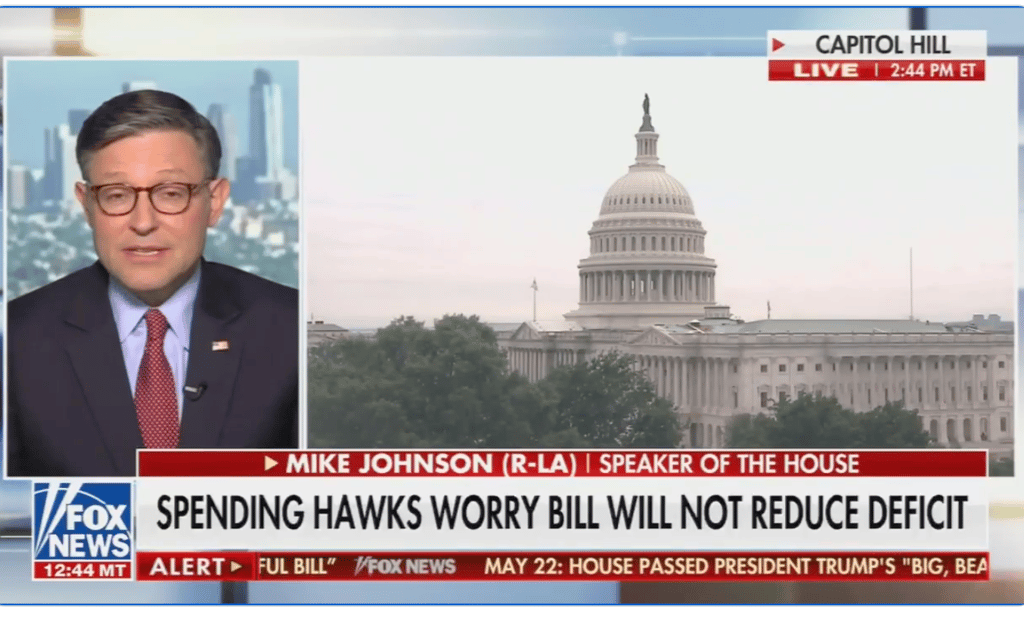The Great Budget Debate: Are We Really Saving $1.5 Trillion or Digging a Deeper Hole?
5/30/20253 min read


The Great Budget Debate: Are We Really Saving $1.5 Trillion or Digging a Deeper Hole?
In the ever-turbulent world of U.S. politics, few topics stir as much debate as the national budget. Recently, House Speaker Mike Johnson made headlines by claiming that a new bill would achieve the "largest amount of savings in the history of government on planet Earth"—a staggering $1.5 trillion in spending cuts. But is this promise as golden as it sounds, or are we overlooking a deeper fiscal chasm? Let's dive into the numbers, the politics, and the potential consequences.
The Claim: A Historic $1.5 Trillion in Savings
Speaker Johnson's assertion is bold and designed to capture attention. He argues that this bill, part of a broader budget reconciliation process, will address the burgeoning national debt by slashing spending in a way never seen before. The idea is appealing, especially to those concerned about the U.S. deficit, which has been climbing steadily. But here's where the story gets complicated.
The Reality: A $3.8 Trillion Deficit Increase?
Despite Johnson's optimism, independent analyses, including projections from the Congressional Budget Office (CBO), paint a different picture. The CBO estimates that the tax provisions within this same bill could actually increase the deficit by $3.8 trillion over the next decade. This stark contrast raises a critical question: How can a bill simultaneously save $1.5 trillion and add nearly four times that amount to the deficit?
The answer lies in the mechanics of budget reconciliation. This process allows for deficit-financed tax cuts and spending adjustments, meaning the House has permitted up to $5.3 trillion in such measures. Johnson's $1.5 trillion in "savings" is part of this larger framework, which also includes $3.8 trillion in "costless" tax cuts under a current policy baseline. In essence, the savings are offset by significant tax reductions that disproportionately benefit certain groups, potentially widening the fiscal gap.
The Political Chess Game
This discrepancy isn't just about numbers; it's a political chess game. Johnson's narrative aims to reassure fiscal conservatives and sway public opinion by emphasizing cost-cutting measures. However, critics argue that these cuts often target essential programs, such as social services and healthcare, while tax cuts favor the wealthy. The result? A shift in resources that may not address the root causes of the deficit but instead exacerbate inequality.
Moreover, the timing of this bill coincides with a period of heightened political tension. With the House and Senate navigating complex negotiations, the pressure to deliver on campaign promises is immense. Johnson's claim of historic savings is part of a broader strategy to maintain party unity and push through controversial legislation. But at what cost?
The Human Impact
Beyond the politics and economics, there's a human story here. Budget decisions don't just affect spreadsheets; they impact lives. Cutting spending on programs that support education, healthcare, and infrastructure could have long-term consequences for millions of Americans. Conversely, tax cuts that primarily benefit the wealthy may not trickle down as promised, leaving middle- and lower-income families to bear the brunt of fiscal austerity.
A Closer Look at the Numbers
Let's break it down further. The $1.5 trillion in savings Johnson touts is a gross figure, not accounting for the lost revenue from tax cuts. When you factor in the $3.8 trillion deficit increase, the net effect is a significant addition to the national debt. This isn't just a matter of accounting; it's a question of priorities. Are we investing in the future, or are we mortgaging it for short-term gains?
The Role of Reconciliation
Budget reconciliation is a powerful tool, but it's also a double-edged sword. It allows for significant policy changes without the filibuster, but it also enables deficit spending on a massive scale. The current resolution permits $5.3 trillion in deficit-financed measures, a figure that dwarfs previous reconciliation packages. This scale of spending raises concerns about sustainability and the long-term health of the economy.
What Does This Mean for the Future?
As we look ahead, the implications of this bill are profound. If Johnson's savings materialize as promised, it could signal a new era of fiscal responsibility. But if the deficit increases as projected, we may face higher interest rates, reduced public services, and a growing burden on future generations. The stakes couldn't be higher.
Thought-Provoking Questions
Is $1.5 trillion in savings worth the potential $3.8 trillion deficit increase? How do we balance short-term gains with long-term fiscal health?
Who benefits most from these tax cuts, and at what cost to public services? Are we prioritizing the right areas of the budget?
What role should budget reconciliation play in addressing the national debt? Is it a tool for reform, or a loophole for deficit spending?
How can we ensure that fiscal policies don't disproportionately impact vulnerable populations? What safeguards are needed to protect essential programs?
The great budget debate is far from over. As we navigate these complex waters, one thing is clear: the decisions we make today will shape the economic landscape for years to come. Stay tuned, and keep asking the hard questions.
hello@boncopia.com
+13286036419
© 2025. All rights reserved.